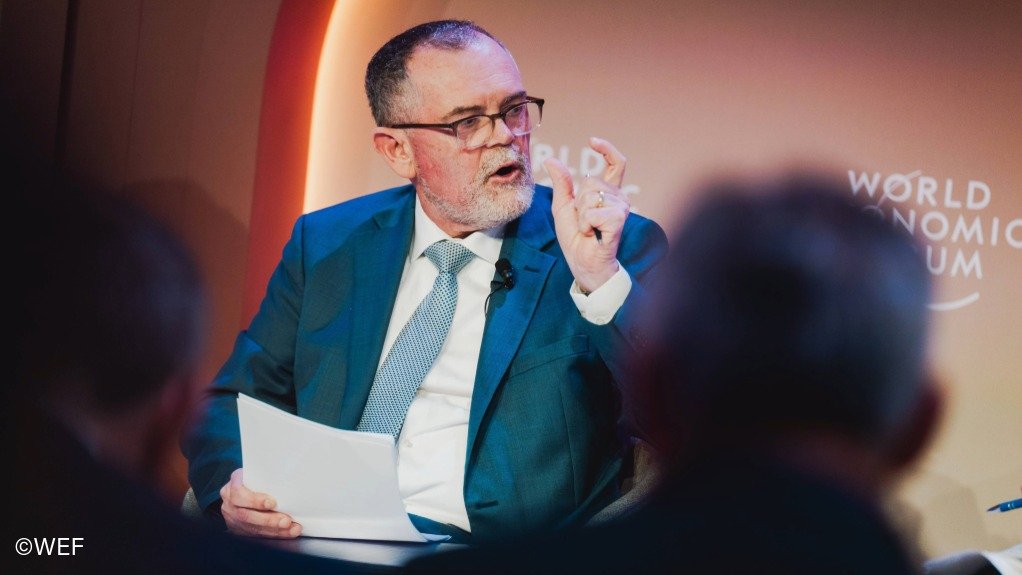Why was Dion George really fired? Inside the political storm shaking South Africa’s environmental future

Minister of Forestry, Fisheries and the Environment Dion George. Image Credit: WEF
In a move that has stunned environmentalists and political observers alike, President Cyril Ramaphosa announced the removal of Environment Minister Dion George, following a request from Democratic Alliance (DA) leader John Steenhuisen. George’s dismissal ends months of speculation about internal divisions within the party and has sparked fears that South Africa’s environmental progress could be reversed.
The announcement, made in a brief statement by the Presidency, confirmed Willem “Willie” Aucamp as George’s replacement. The decision, critics say, exposes the growing tension between conservation-driven policy and pro-hunting business interests deeply entrenched in South African politics.
Was “Under-Performance” the Real Reason?
Officially, George’s removal was attributed to “under-performance.” But his record tells a different story. Since taking office in July 2024, he has led the signing of the High Seas Treaty, chaired the G20 environmental and climate sustainability meeting in Cape Town, and finalized more than 3,000 renewable energy applications. His department earned an unqualified audit and took decisive action against pollution by tightening oversight on Eskom’s emissions exemptions.
Behind the scenes, however, George had angered powerful groups. His firm stance against the captive lion breeding industry and his decision to ban lion-bone exports to Asia placed him in direct opposition to influential wildlife breeders and lobbyists. Many conservationists now believe that this confrontation, not poor performance, was the real trigger for his removal.
READ ALSO
Ramaphosa admits to meeting accused Tembisa corruption figure Maumela
The Captive Lion Breeding Battle
Soon after taking office, George froze new permits for captive lion breeding and set the export quota for lion bones to zero, following a 2020 court ruling in favor of the NSPCA. The industry, worth millions in trophy hunting and cub-petting tourism, responded with fury. Eleven members of the South African Predator Association took his department to court to reinstate the trade.
His hardline approach drew praise from global conservationists but infuriated domestic stakeholders. “He stood for ethical policy in an environment long dominated by profit,” said a senior conservation official. For many, his sacking reflects the immense influence of South Africa’s wildlife trade lobby and a setback for animal welfare.
Conservationists Outraged Over Willie Aucamp’s Appointment
The appointment of Willie Aucamp, a DA MP with links to hunting and game breeding, has intensified the backlash. The Wildlife Animal Protection Forum South Africa (WAPFSA) warned that Aucamp’s “private interests could influence the state’s decision-making,” while the NSPCA called his appointment “a regression” for environmental justice.
Aucamp’s family businesses reportedly engage in game breeding and trophy hunting, the very industries George sought to reform. Conservationists fear this represents a major conflict of interest and may reverse years of progress. “Appointing Aucamp sends a dangerous message to the global community watching South Africa’s conservation policies,” WAPFSA said in a statement.
Political Divisions Deepen Within the DA
The controversy has exposed deep rifts within the DA. Just a year ago, DA environment spokesperson Andrew de Blocq publicly supported George’s ban on canned-lion hunting, describing the industry as “ethically indefensible.” Steenhuisen’s decision to replace George with Aucamp now signals a shift toward the “sustainable-use” camp, politicians who advocate commercial breeding and regulated hunting.
Many DA supporters have voiced outrage, accusing Steenhuisen of hypocrisy. Social media reactions, from former party donors to conservation activists, reflect disillusionment. “If any DA minister should have been fired for underperformance, it’s Steenhuisen himself,” one voter wrote.
Fallout for COP30 and South Africa’s Global Reputation
Adding to the drama, George’s firing came while he was leading South Africa’s delegation at COP30 in Belém, Brazil. As co-chair of the Adaptation Committee, George played a crucial role in climate resilience negotiations. His sudden dismissal has left questions about who now represents the country and whether South Africa’s leadership in climate diplomacy is at risk.
Critics have described the timing as “reckless” and “politically tone-deaf.” Conservation bodies warn the move could harm the nation’s standing in international environmental circles. “It’s a serious blow to South Africa’s credibility,” said one environmental law expert.
A Minister Who Wouldn’t Back Down
In a recent interview, George remained defiant. “I’m doing my job without fear, favour or prejudice,” he said, emphasizing his loyalty to DA policy. “Shutting down captive lion breeding is DA policy. I followed it. My duty is to the people of South Africa.”
His removal has sparked a larger debate about the influence of private interests in public policy. Whether Dion George returns to public office or not, his fight against exploitation in the wildlife industry has already reshaped South Africa’s conservation narrative, and ignited a national conversation about what kind of future the country wants for its environment.
FAQs — What People Are Asking About Dion George’s Firing
Why was Dion George fired?
He was removed after DA leader John Steenhuisen cited underperformance, though many believe his anti–wildlife breeding policies angered powerful lobbies.
Who replaced Dion George?
DA MP Willie Aucamp, whose ties to the hunting industry have drawn widespread criticism.
What did Dion George achieve as minister?
He advanced climate policy, expanded renewable energy, signed the High Seas Treaty, and cracked down on wildlife exploitation.
What’s next for South Africa’s environmental policy?
Observers fear the DA’s new leadership may roll back bans on lion breeding and wildlife trade, shifting focus toward commercial “sustainable use.”
Was his firing linked to COP30?
Yes. The timing, while he was co-chairing the Adaptation Committee at COP30, raised concerns about leadership stability in international climate talks.

